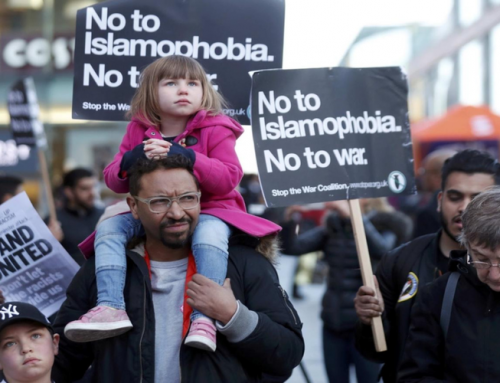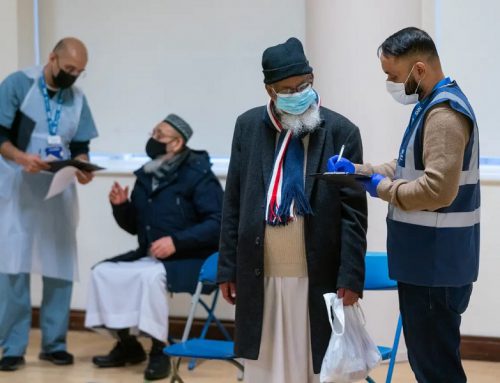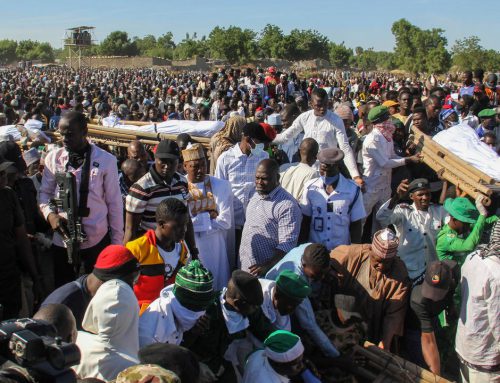The threats made by ISIS against Egyptian Copts on 19 February 2017 contained a great deal of hatred and arrogance to the extent that ISIS was ignorant of the fundamentals of religion, the basic teachings of the Prophet, and the foundations of Islamic history which had witnessed intimate and peaceful relations between Christians and Muslims in Egypt over the past 14 centuries. ISIS and their supporters and followers from Ansar Al-Maqdis and Agnad Misr groups did not hesitate to translate their threats into action by blowing up the St. Mark’s Cathedral in Cairo on December 11, 2016. Following their last threat in February, they bombed the churches of Saint George and Saint Mark in Tanta and Alexandria on Sunday, April 9, 2017, as well as their latest terrorist attack, which targeted innocent people whose guilt was going on a religious trip to the Monastery of St. Samuel in Minya on 26 May 2017. This series of bloody bombings does not occur in isolation from individual attacks. An example of this is the slaughter of an Egyptian Copt by a radical in public on January 4, 2017, and other assaults that have grown in number in a disturbing manner, which requires a broad and complete review of the security plans in place. These attacks also require a comprehensive review of the religious literature prevailing in the Egyptian Muslim community about the relationship between Muslims and non-Muslims, noting that these bombings target Egypt itself as a unified and strong country and does not target the Copts as a component of Egypt. This is consistent with the schemes announced to re-divide the Middle East in service of the Zionist entity, and Egypt has always been at the heart of these schemes. These schemes indicate that a Christian state should be established for the Copts in northern Egypt. The realization of this scheme is a path that undermines the security of the Copts and launches a terror campaign against them to justify the idea of separation and having a Coptic state. This is perpetuated through bloody attacks targeting this minority, at the hands of an organization that claims to be Muslim, i.e. ISIS and related terrorist organizations.
In the light of what happened, and which might happen, God forbids, to our Coptic brothers in Egypt, it is worth returning to the noble teachings of the Prophet and the biography of the honourable Muslim Caliphs with the Copts of Egypt to nullify the claim of ISIS of belonging to the guidance of the Prophet to justify these acts of harm, which cause damage to Islam and Muslims alike.
The books of the noble teachings of the Prophet are full of prophetic traditions that prophesise the arrival of Islam to Egypt and reflect the keenness of the Prophet (peace be upon him) on the security and safety of the Copts of Egypt. Ka’b Ibn Malik narrated that the Prophet (peace be upon him) said: “If you open Egypt, be good to the Copts, they are a people of the book and we should be merciful to them.” The Prophet’s companion Abu Zar narrated that the Prophet (peace be upon him) said: “You will open a land in which Carat is mentioned, be good to its people, they are a people of the book, and we should be merciful to them.” Um Salamah, the Prophet’s wife (may God be pleased with her) said the Prophet (peace be upon him) recommended while on his deathbed saying: “Remember God when dealing with the Copts of Egypt. They will be by your side and will be helpful on the path to God.” He also said: “I recommend you to be good to the people of Egypt, they have blood and marriage relationships with us.” This is in addition to other narrations and commandments, which spoke good of and recommended to be good to all Copts by treating them well. Muslim scholars said what is meant by “They have blood and marriage relationships.” is Hajar, the mother of Isma’il, the father of Arabs, and the Prophet’s marriage to Maria the Copt, the mother of Ibrahim, the son of the Prophet, peace be upon him. The book of Riad Al-Saliheen, a book of the Prophet’s narrations, in the section of ‘Connecting with Parents and being good to them,” refers to this mercy, which God and His Prophet ordered between Muslims and the Christians of Egypt, even before many Egyptian reverted to Islam. This is what the Prophet (peace be upon him) said about the Copts of Egypt.
His commandments to be compassionate with the people of the book from all religions are known and have many examples, stressing that they should not be insulted. He (peace be upon him) said: “Whoever harms a believer, I am his adversary, and you are his adversaries and opponents on the Day of Judgement.” He also said: “Whoever hurts people of the book, takes their rights, or asks them to do what they can’t bear, or takes something from them by force, I will be his judge on the Day of Judgement.” And: “Whoever hurts people of the book is as if hurting me, and who hurts me hurts God.” He warned against killing the people of the book, saying, “Whoever kills the people of the book will not smell Heaven, and will be forty years away from it.”
These were mentioned in the narrations of the two major Hadith narrators (Bukhari and Muslim) and they are all correct. When Egypt was conquered by the Muslims in 16 AH, the conquerors under the leadership of Amr Ibn al-Aas, following the commandments of the Prophet, entered Egypt only with 3000 soldiers, and they did not touch the Copts at all. They fought only with the Roman forces who were occupying Egypt at the time. When Amr Ibn al-Aas was appointed as the Muslim leader of Egypt – according to the Coptic historian Jakob Nakhla Rafila – in his book the History of the Coptic Nation, he gave safety to the Coptic Patriarch Benjamin, who was hiding in the desert due to Roman oppression. He served as a Patriarch for 39 years until his death, and Amr Ibn al-Aas used to consult him in all cases related to the Copts. Ibn al-Aas appointed Copts as his advisers. Jacob Nakhla notes that most of his advisers were Copts and the most known among them was the advisor Shanouda. Other Muslim Caliphs followed the same approach and did not force the Copts to enter Islam. It is interesting to note that Egypt remained a Christian majority for 800 years after the Islamic conquest; that is, throughout the eras of the four Caliphates and the Umayyads and Abbasids.
*Dr.Tarik Ladjal is Professor of History at Effat University in Jeddah, Saudi Arabia





